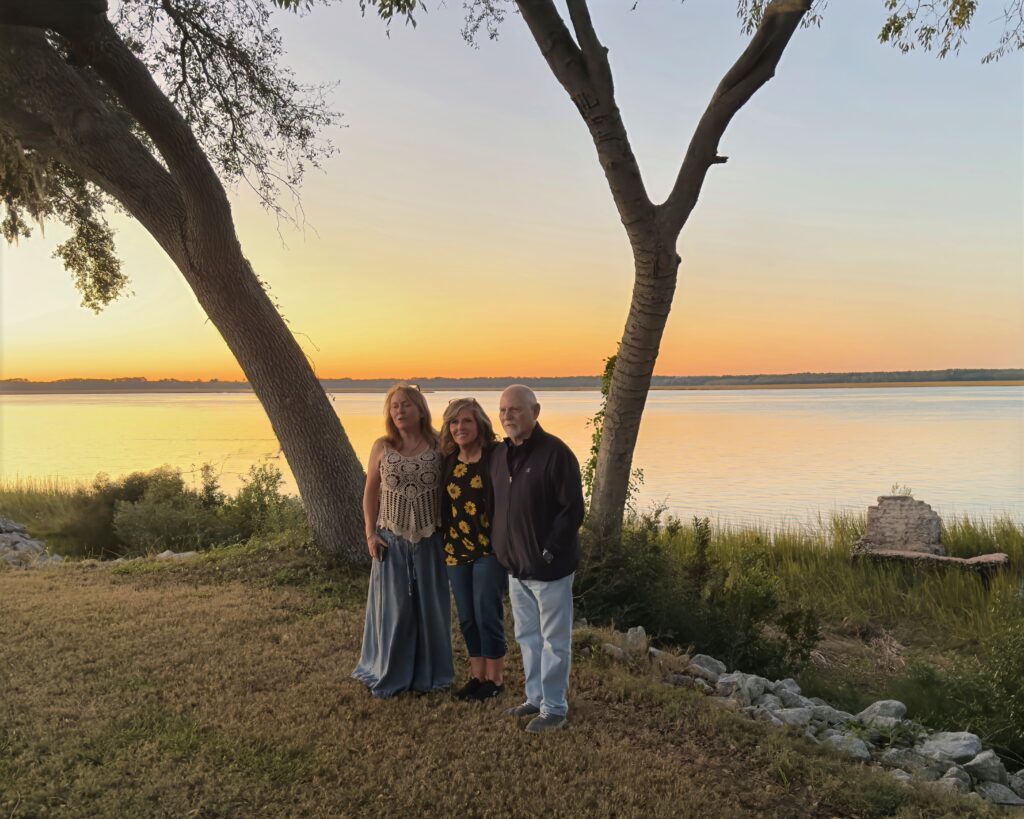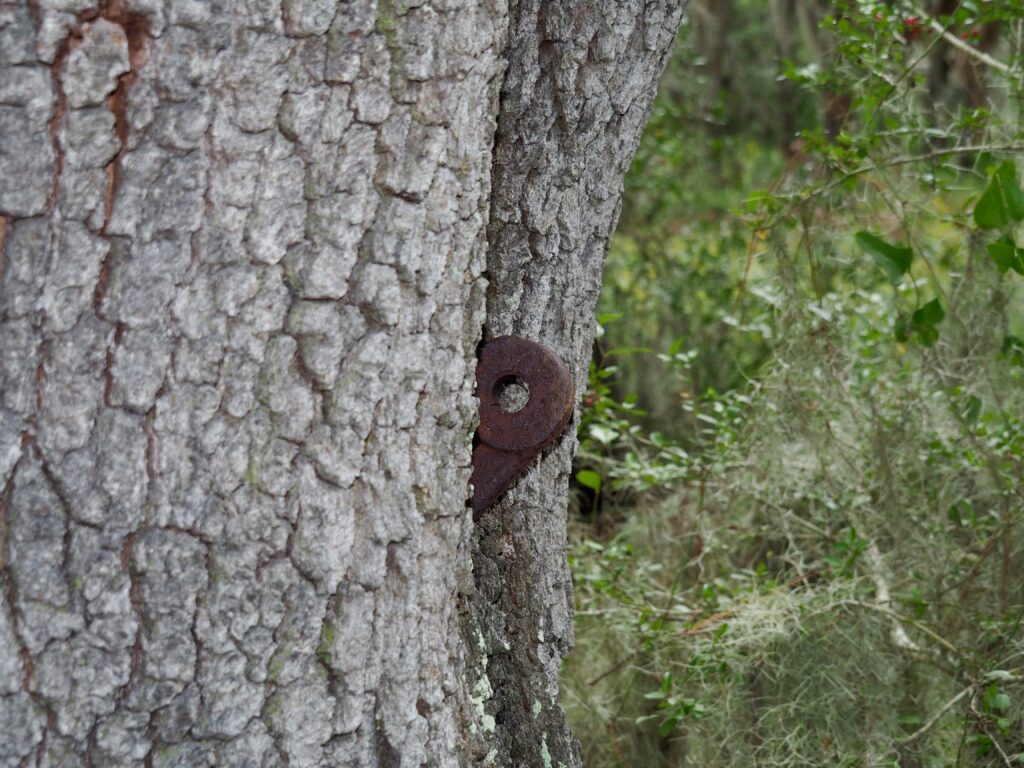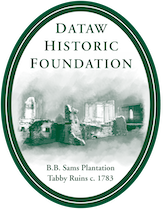3 Images of History

1 – Echoes of the Sams Plantation. Visiting descendants of Dr. Lewis Reeve Sams Jr, MD, were able to view the ruins of their GGGGrandfather’s plantation house on Dataw Island. [photo by Bill Riski, October 2025]
2 – The Traveling Silver Spoon. Dr. Lewis Reeve Sams Jr., MD (1810-1888) took this silver spoon with him when his family evacuated their plantation home on Polowana Island, SC, on the evening of the Battle of Port Royal Sound, November 7, 1861. They took it along when they sailed to Galveston, TX, in October 1866. Today, it’s in the hands of his descendants in Tennessee. [photo by Bill Riski, January 2025]


3- Forgotten Relic in the Oaks. Back in the early ’80s, this thing dropped off some heavy machinery while ALCOA was working on the roads at the southern end of Dataw Island. A security staff member came across it and placed it in the crook of a live oak tree, but it was never retrieved. [Photo by Bill Riski, October 2020]
2 Moments in History
Was Frankenstein, by Mary Shelley, read in Beaufort in the early 19th century?
What were the Sams up to in the 1820 to 1840 period?
Brothers Lewis Reeve Sams (1784–1856) and Dr. Berners Barnwell Sams (1787–1855) were at the height of their lives as successful Sea Island planters. Together, they raised large families—Lewis with 12 children, Berners with 15—and managed thriving cotton plantations worked by enslaved people. Their world was defined by tradition, land, and the rhythms of Lowcountry life.
Across the Atlantic, Mary Shelley (1797–1851) was reshaping the literary world.
Frankenstein was published in the UK in 1818 and in the U.S. in 1823.
Her novel Frankenstein; or, The Modern Prometheus first appeared in 1818, followed by new editions in 1823 and 1831. The first American edition arrived in 1823, about the same time Lewis’s and Berners’s older children were coming of age.
So, could a copy have made its way to Beaufort or St. Helena Island? Possibly.
But would the Sams have read it? Probably not.
The book’s dark, questioning tone and its themes of human ambition and creation stood far from the genteel, classical literature favored by the Southern planter class. Yet it’s fascinating to imagine that, as the Sams family cultivated sea island cotton and sold it to British mills, Shelley’s “modern Prometheus” was sparking new ideas in readers a world away—ideas that still shape how we think about science, technology, and moral responsibility today.
1 Memory Preserved
“Many people die at twenty-five and aren’t buried until they are seventy-five.”
Benjamin Franklin
A reminder that curiosity keeps history—and humanity—alive.
What’s the most surprising thing you’ve learned about Dataw’s past since moving here?
Send your answer to Bill Riski.

